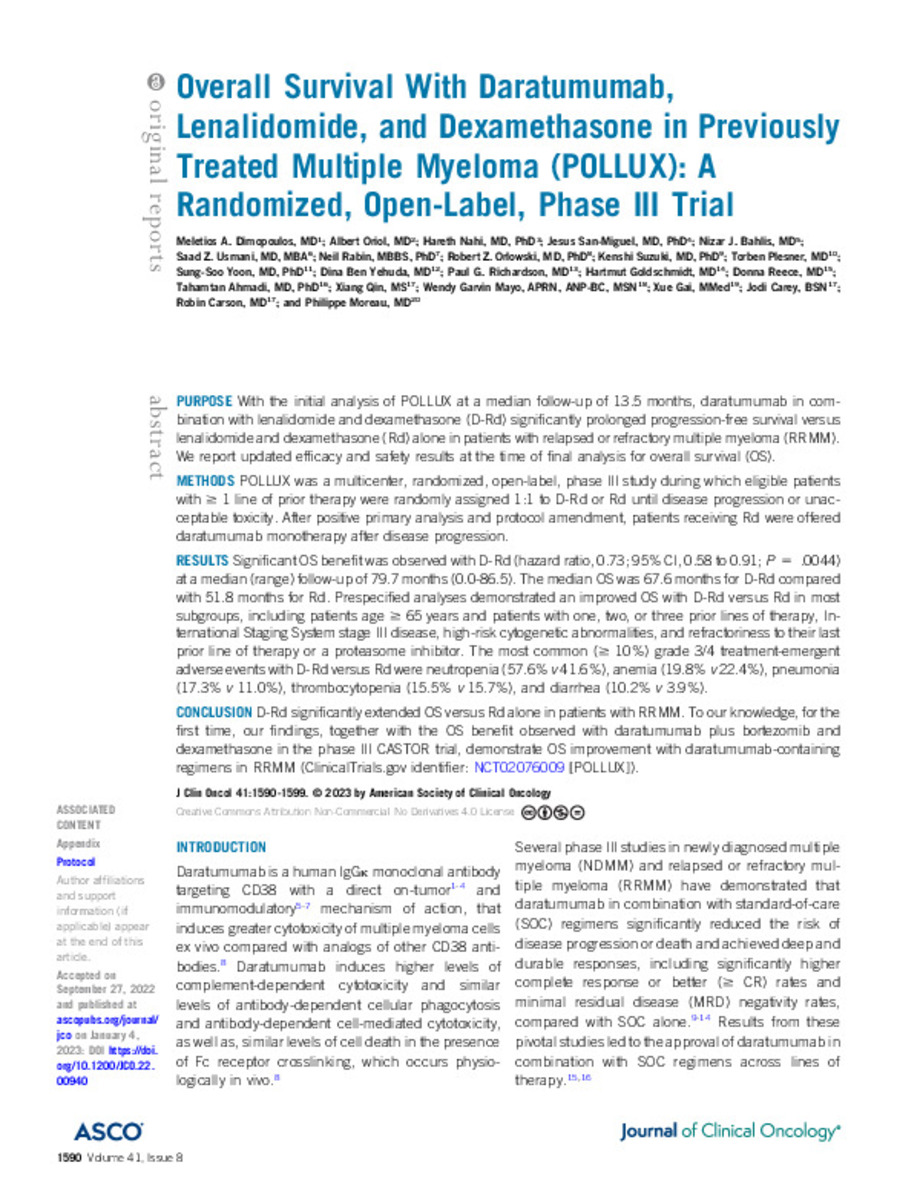Overall survival with daratumumab, lenalidomide, and dexamethasone in previously treated multiple myeloma (POLLUX): a randomized, open-label, phase III trial
Keywords:
Antibody daratumumab
Note:
Creative Commons Attribution Non-Commercial No Derivatives 4.0 License
Citation:
Dimopoulos, M. A.; Oriol, A.; Nahi, H.; et al. "Overall survival with daratumumab, lenalidomide, and dexamethasone in previously treated multiple myeloma (POLLUX): a randomized, open-label, phase III trial". Journal of clinical oncology. 41 (8), 2023, 1590 - 1599
Statistics and impact
0 citas en

0 citas en

Items in Dadun are protected by copyright, with all rights reserved, unless otherwise indicated.







